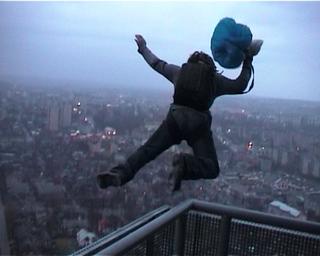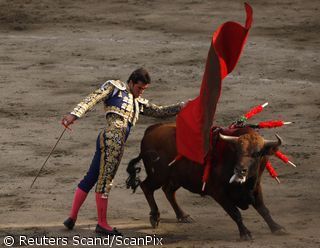Millions of Russian-speaking former citizens of the Soviet Union play a key part in the Russian economy by sending billions of rubles back to their own republics while they work in Russia
Published:
25 March 2003 y., Tuesday
Some of the workers build dachas in the Moscow region, while others drive trolleybuses in Moscow, sell vegetables in open markets or bring in the harvest in agricultural regions.
For the many families of these laborers, the paychecks are their key to survival. About a quarter of the households in Armenia and Azerbaijan are dependent on transfers from family members working in Russia, said Zhanna Zaionchkovskaya, head of the Academy of Sciences' Center for Migration Studies.
Families in other republics, including Georgia, Ukraine, Moldova and Tajikistan, also count on the money, but there are no reliable figures on the amounts involved, she said.
Nationalities Minister Vladimir Zorin said last year that 2 million Armenian and 1.5 million Azeri migrants are in Russia, while the next-largest groups are from Ukraine, Moldova and Tajikistan.
But most of the migrants are not registered in Russia, leaving them open to exploitation and extortion from employers and law-enforcement agencies.
Many of the workers are ethnic Russians unable to get citizenship since the government made it more difficult last year. Many have been living and working in the country for years. The law on foreigners, introduced in November, is intended to either legalize these workers or kick them out.
Šaltinis:
themoscowtimes.com
Copying, publishing, announcing any information from the News.lt portal without written permission of News.lt editorial office is prohibited.
The most popular articles
 From Luis Figo to David Villa footballers are urging people to vote in the European elections this week.
more »
From Luis Figo to David Villa footballers are urging people to vote in the European elections this week.
more »
 To celebrate European Neighbours Day, a new photo exhibition entitled Images from Slovenia and Ireland went on display this week at the European Commission Representation in Ireland.
more »
To celebrate European Neighbours Day, a new photo exhibition entitled Images from Slovenia and Ireland went on display this week at the European Commission Representation in Ireland.
more »
 This is a tarsier monkey. It's one of the smallest on earth and is only found in South East Asia.
But now the tarsier is the brink of extinction in Indonesia's Sulawesi Island.
more »
This is a tarsier monkey. It's one of the smallest on earth and is only found in South East Asia.
But now the tarsier is the brink of extinction in Indonesia's Sulawesi Island.
more »
 On 31 May, three new TV spots will be shown on over 100 TV channels across Europe for one month and repeated during the month of September.
more »
On 31 May, three new TV spots will be shown on over 100 TV channels across Europe for one month and repeated during the month of September.
more »
 Haizhu Bridge in China's southern city of Guangzhou has become a popular venue for those attempting suicide. Chen Fuchao was at least the 12th person since last month threatening to jump.
more »
Haizhu Bridge in China's southern city of Guangzhou has become a popular venue for those attempting suicide. Chen Fuchao was at least the 12th person since last month threatening to jump.
more »
 Crowds gathered outside California's Supreme Court as it upheld a controversial ban on gay marriage, known as Proposition 8.
more »
Crowds gathered outside California's Supreme Court as it upheld a controversial ban on gay marriage, known as Proposition 8.
more »
 Hundreds of demonstrators stripped off to protest against Spain's second biggest mass spectacle after soccer.
more »
Hundreds of demonstrators stripped off to protest against Spain's second biggest mass spectacle after soccer.
more »
 70-year-old Ruddha shows off her wounds, her crime - being a witch...
more »
70-year-old Ruddha shows off her wounds, her crime - being a witch...
more »
 Police are intensifying their search for a 13-year old boy with cancer and his mother from Minnesota.
more »
Police are intensifying their search for a 13-year old boy with cancer and his mother from Minnesota.
more »
 One fifth of Europe’s reptiles and nearly a quarter of its amphibians are threatened, according to new studies commissioned by the European Commission and carried out by IUCN.
more »
One fifth of Europe’s reptiles and nearly a quarter of its amphibians are threatened, according to new studies commissioned by the European Commission and carried out by IUCN.
more »